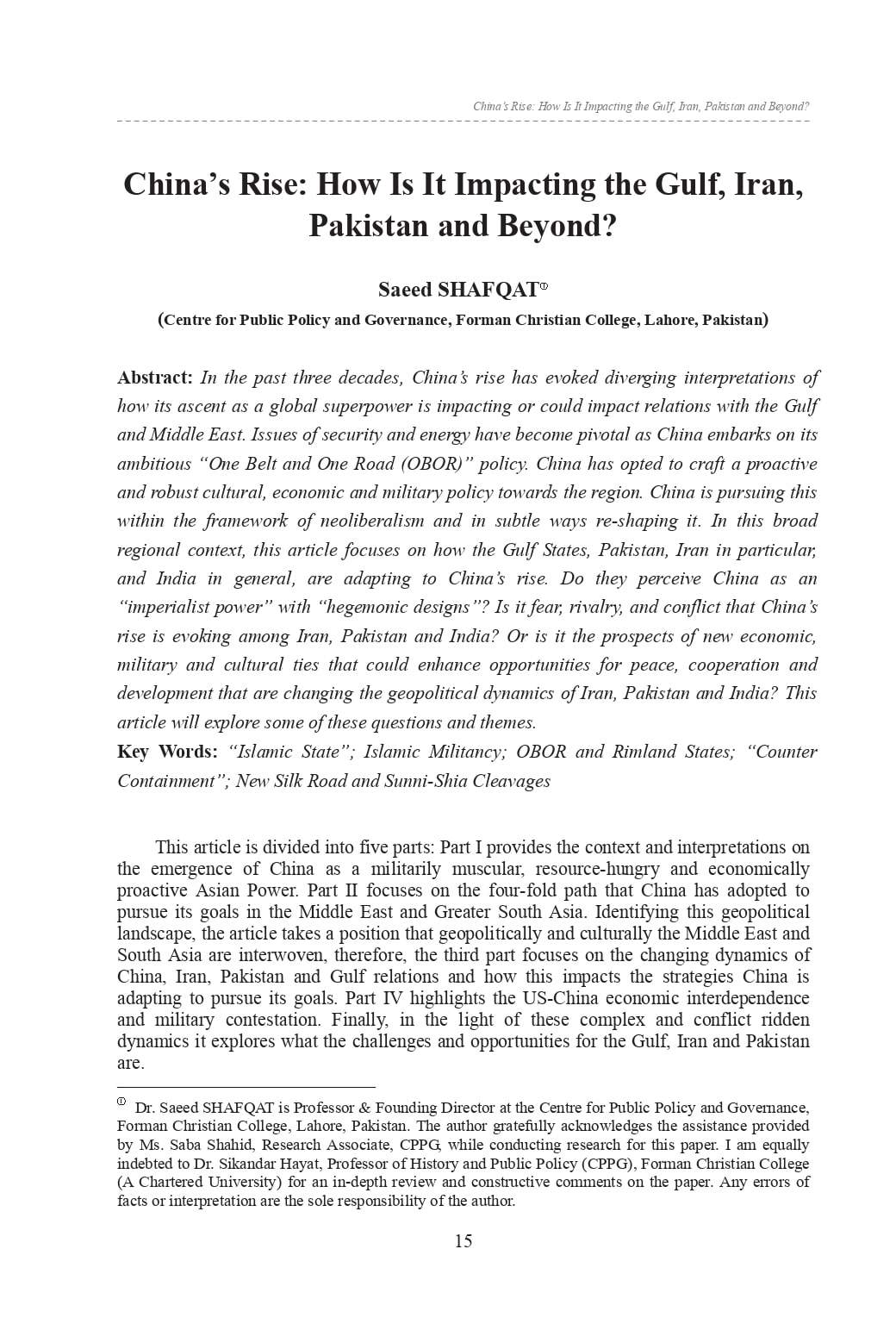
Abstract
In the past three decades, China’s rise has evoked diverging interpretations of how its ascent as a global superpower is impacting or could impact relations with the Gulf and Middle East. Issues of security and energy have become pivotal as China embarks on its ambitious “One Belt and One Road (OBOR)” policy. China has opted to craft a proactive and robust cultural, economic and military policy towards the region. China is pursuing this within the framework of neoliberalism and in subtle ways re-shaping it. In this broad regional context, this article focuses on how the Gulf States, Pakistan, Iran in particular, and India in general, are adapting to China’s rise. Do they perceive China as an “imperialist power” with “hegemonic designs”? Is it fear, rivalry, and conflict that China’s rise is evoking among Iran, Pakistan and India? Or is it the prospects of new economic, military and cultural ties that could enhance opportunities for peace, cooperation and development that are changing the geopolitical dynamics of Iran, Pakistan and India? This article will explore some of these questions and themes.
Key Words: “Islamic State”; Islamic Militancy; OBOR and Rimland States; “Counter Containment”; New Silk Road and Sunni-Shia Cleavages
Citations

